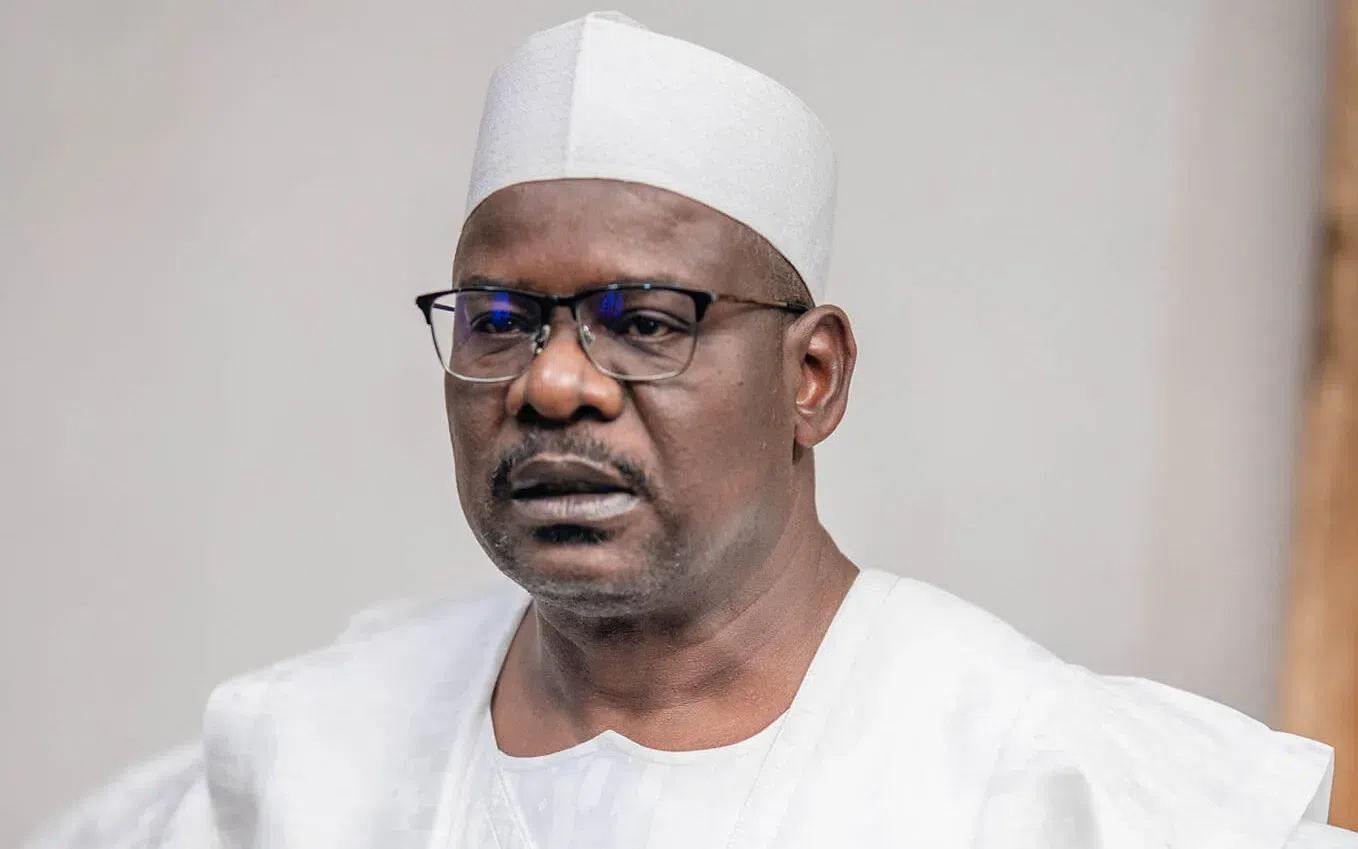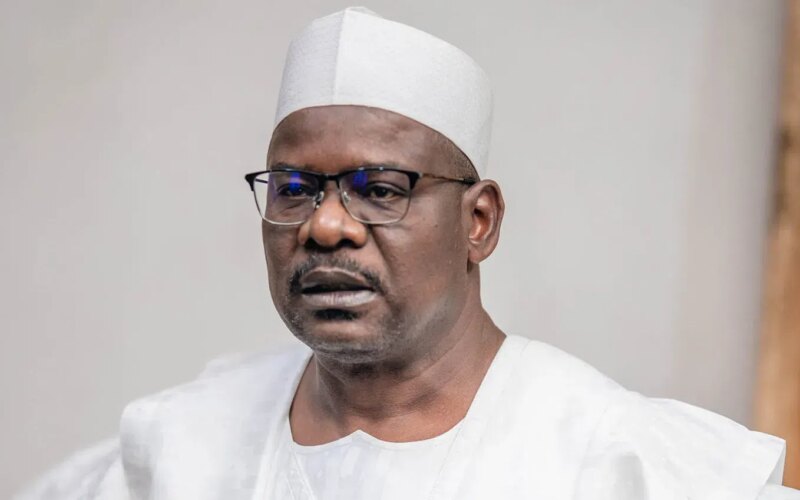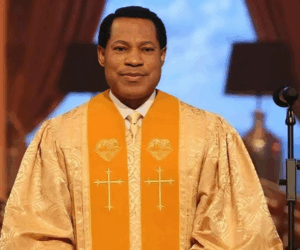
Senator Mohammed Ali Ndume was born in Gwoza, Borno State. He rose from being a lecturer to a prominent lawmaker, and he is currently a Senator representing Borno South. He is popularly known for his active roles in Senate leadership and vocal commentary on national issues.
Who Is Mohammed Ali Ndume?
Senator Mohammed Ali Ndume is a Nigerian politician from Borno State, a member of the All Progressives Congress (APC), and has served as the Senator representing Borno South since 2011. He is known for holding parliamentary leadership positions and his outspoken views on governance, security, and national character.
ALSO READ: Meet Ned Nwoko: The Billionaire Senator Behind Regina Daniels
Profile Summary (Quick Facts Table)
|
Full Name |
Mohammed Ali Ndume |
|
Date of Birth/Age |
20 November 1959 (age 65 as of late 2025) |
|
State of Origin |
Borno State |
|
Local Government Area |
Gwoza LGA |
|
Tribe/Ethnicity |
Kanuri (or Kanuri‐related) |
|
Religion |
Islam (publicly Muslim) |
|
Marital Status |
Married (he has more than one wife) and has children. |
|
Political Party |
All Progressives Congress (APC); formerly ANPP, then PDP, before APC |
|
Current Position |
Senator for Borno South Senatorial District |
|
Years Active in Politics |
From about 2003 to present (House of Representatives from 2003; Senate from 2011) |
|
Net worth (Estimated) |
No verified public disclosure; some sources report speculative figures (~US$500 million), but these are unconfirmed. |
Early Life and Education
Mohammed Ali Ndume was born on November 20, 1959, in Gwoza, Borno State, Nigeria. He grew up in a modest family, the son of Alhaji Ali Buba Ndume, a respected community leader in Gwoza. His early education began at Gadamayo Primary School, Gwoza, where he obtained his First School Leaving Certificate in 1972.
The following year, he enrolled at Comprehensive Secondary School in Mubi, where he studied from 1973 to 1978. Ndume distinguished himself both academically and in leadership, serving as Junior House Captain and later as House Captain in his final year.
His pursuit of higher education led him to Kaduna Polytechnic, where he earned an Ordinary National Diploma (OND) in Marketing in 1980 and a Higher National Diploma (HND) in 1982, graduating with Upper Credit. Upon completion, he served with the National Youth Service Corps (NYSC) at the Federal Polytechnic, Ilaro, Ogun State, from 1982 to 1983.
YOU MIGHT LIKE: Barau Jibrin: The Accountant Who Rose to Become Deputy Senate President
In recognition of his academic potential, Mohammed Ali Ndume received a United States Agency for International Development (USAID) postgraduate scholarship in 1988 to study at the University of Toledo, Ohio. There, he earned both a Bachelor’s and a Master’s degree in Business and Computer Education in 1990, graduating magna cum laude and gaining membership in the Phi Kappa Phi Honour Society for academic excellence.
Career Before Politics
After returning from the United States, Mohammed Ali Ndume resumed his teaching career at Ramat Polytechnic, Maiduguri, where he had worked before his postgraduate studies. At Ramat Polytechnic, he steadily rose through the ranks to become a Senior Lecturer, contributing to curriculum development and student mentorship in the fields of business and computer education.
His years in academia shaped his views on leadership, education, and youth empowerment. These values would later define his political philosophy. Ndume’s growing interest in governance and development issues in Borno eventually steered him away from academia and into active politics in 2003.
Political Career
Mohammed Ali Ndume officially began his political journey in 2003 when he contested and won a seat in the House of Representatives under the platform of the All Nigeria Peoples Party (ANPP), representing Chibok/Damboa/Gwoza Federal Constituency.
RECOMMENDED: Meet Godswill Akpabio, a Former Akwa Ibom Governor, Now Senate President
His performance earned him the trust of his constituents, leading to his re-election in 2007. That same year, with the inauguration of the Sixth Assembly, Mohammed Ali Ndume was unanimously elected as the Minority Leader of the House of Representatives. However, political disagreements within the ANPP eventually led to his defection to the Peoples Democratic Party (PDP) in 2010.
Major Political Roles
In 2011, Mohammed Ali Ndume’s political career reached a new height when he was elected as Senator representing Borno South Senatorial District. He has since retained that seat through subsequent re-elections, making him one of the longest-serving legislators from northern Nigeria.
After defecting to the All Progressives Congress (APC) ahead of the 2015 general elections, Mohammed Ali Ndume became a key player in the Senate, aligning with the Bukola Saraki-led faction that defied party directives during the leadership contest. This alliance earned him the position of Senate Majority Leader in 2015, though he was controversially removed from the role in January 2017 following political disagreements linked to the rejection of EFCC Acting Chairman, Ibrahim Magu.
Undeterred, Mohammed Ali Ndume remained active and vocal in the chamber, often challenging party orthodoxy. He contested for the position of Senate President in 2019 but lost to Senator Ahmed Lawan. In July 2023, he was appointed Chief Whip of the 10th Senate, a role he held until his removal in July 2024.
EXPLORE: Adams Oshiomhole Biography: From Labour Battles to Legislative Power
Throughout his career, Mohammed Ali Ndume has remained an outspoken advocate on national issues, known for his independent stance and readiness to confront leadership decisions he deems unconstitutional or unjust.
Achievements and Impact
Senator Mohammed Ali Ndume’s impact extends beyond politics into tangible development efforts across Borno South. He has facilitated numerous constituency projects, including the construction of schools, rural electrification schemes, primary health centres, water boreholes, and agricultural empowerment initiatives.
Personal Life
Net Worth and Assets
While he has occasionally faced public scrutiny regarding his political influence and resource control, there has been no substantiated corruption case against him.








